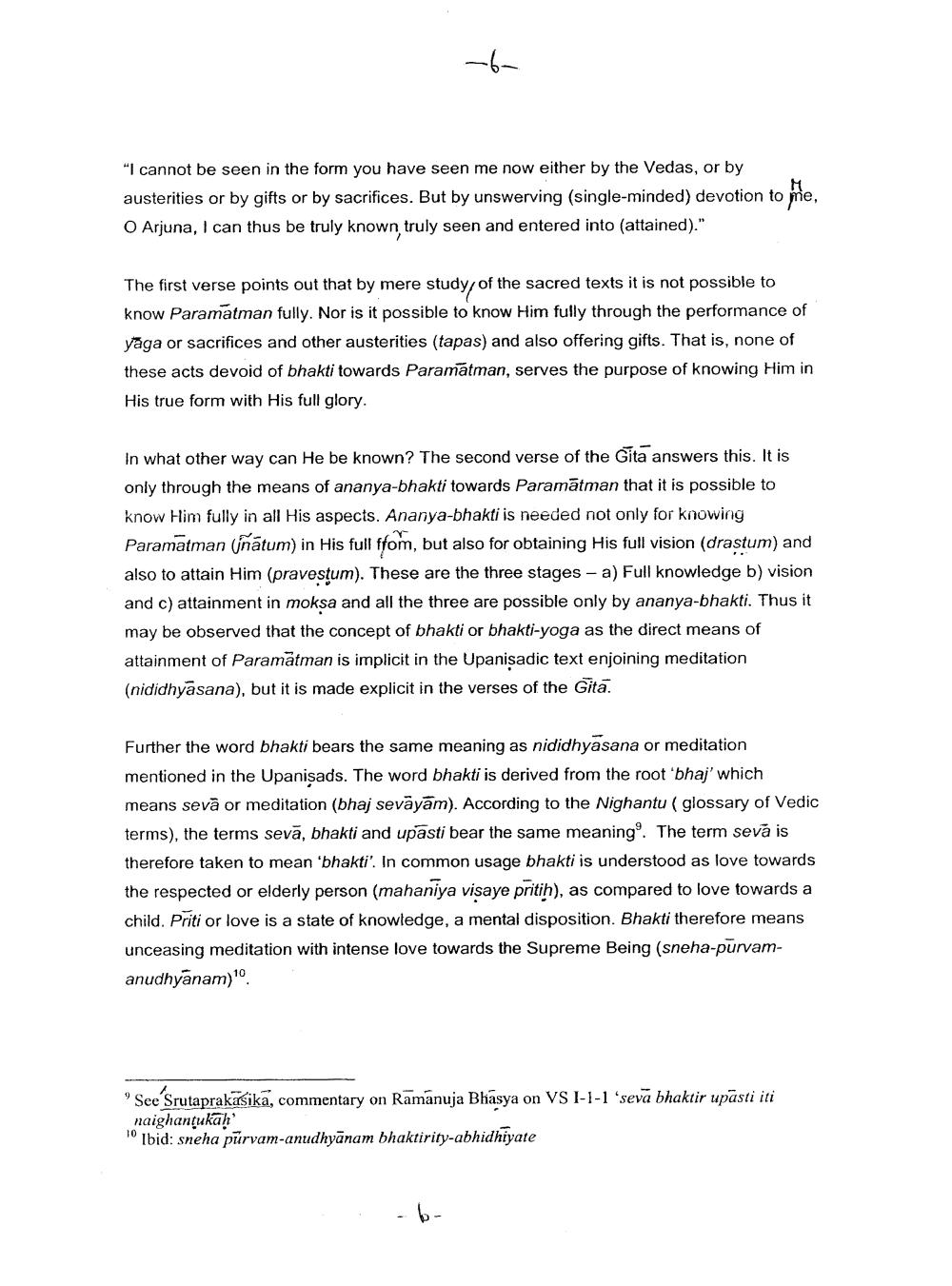Book Title: Synthesis of Yoga in Vaisnavism of Ramanuja Author(s): Publisher: View full book textPage 6
________________ "I cannot be seen in the form you have seen me now either by the Vedas, or by austerities or by gifts or by sacrifices. But by unswerving (single-minded) devotion to me, O Arjuna, i can thus be truly known truly seen and entered into (attained)." The first verse points out that by mere study of the sacred texts it is not possible to know Paramatman fully. Nor is it possible to know Him fully through the performance of yaga or sacrifices and other austerities (tapas) and also offering gifts. That is, none of these acts devoid of bhakti towards Paramatman, serves the purpose of knowing Him in His true form with His full glory. In what other way can He be known? The second verse of the Gita answers this. It is only through the means of ananya-bhakti towards Paramatman that it is possible to know Him fully in all His aspects. Ananya-bhakti is needed not only for knowing Paramatman (jnatum) in His full ffom, but also for obtaining His full vision (drastum) and also to attain Him (pravestum). These are the three stages - a) Full knowledge b) vision and c) attainment in moksa and all the three are possible only by ananya-bhakti. Thus it may be observed that the concept of bhakti or bhakti-yoga as the direct means of attainment of Paramatman is implicit in the Upanisadic text enjoining meditation (nididhyasana), but it is made explicit in the verses of the Gita. Further the word bhakti bears the same meaning as nididhyasana or meditation mentioned in the Upanisads. The word bhakti is derived from the root 'bhaj' which means seva or meditation (bhaj sevayam). According to the Nighantu ( glossary of Vedic terms), the terms seva, bhakti and upasti bear the same meaning. The term seva is therefore taken to mean 'bhakti'. In common usage bhakti is understood as love towards the respected or elderly person (mahaniya visaye pritih), as compared to love towards a child. Priti or love is a state of knowledge, a mental disposition. Bhakti therefore means unceasing meditation with intense love towards the Supreme Being (sneha-purvamanudhyanam) "See Srutaprakasika, commentary on Ramanuja Bhasya on VS 1-1-1 'seva bhaktir upasti iti naighantukah 10 Ibid: sneha purvam-anudhyanam bhaktirity-abhidhiyatePage Navigation
1 ... 4 5 6 7 8 9 10 11 12 13 14 15 16 17 18 19 20 21 22 23
